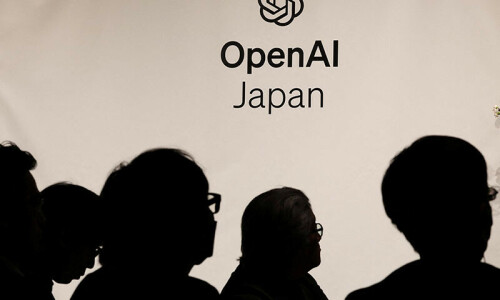IN today’s world, better and stronger economic growth requires quality financial intermediation. And the changing patterns of key productive sectors — agriculture and manufacturing — can be spurred by reorienting banking services in that direction.
Unfortunately, the efficiency of the banking sector is far from the desired level in this context.
Two things have become the hallmark of banking in recent years. First, banks overinvest in government debt papers, and second, they seldom come out of ‘comfort zone lending’.
The victims of a less-efficient banking system include formal businesses. Businesses prospering from informal investment financing are offering tough competition to the companies that operate legally and rely on bank financing
Banks’ investment in government securities almost tripled during the last four years, from Rs1.368trn at end-June 2010 to Rs4.046trn at end-June 2014. Against this, the stock of their loans to private sector businesses (PSBs) grew just 34pc, from Rs2.058trn to Rs2.765trn. That is, whereas banks invested Rs2.678trn in government debt papers in just four years, they lent only Rs707bn to PSBs during the same period.
Besides, more than 60pc of bank credit remained concentrated in food (28pc), textiles (12.5pc), agriculture (12pc) and electricity and gas (9pc) sectors.
Excluding agriculture, which deserves much more, credit concentration in other sectors indicates that banks don’t bother to explore the full potential of diverse lending. Financing to retail trade, for example, accounted for less than 2pc of banks’ incremental lending to PSBs during the last four fiscal years. Higher credit supply to retailers could have helped document this important sector and boosted the domestic economy.
“But the problem is that banks have not been investing much in human resource so as to be prepared for lending outside their comfort zone,” points out a former NBP president.
“Banks won’t lend enough to sectors like housing, small and medium enterprises (SMEs), agribusinesses and retail trade unless they find out that by ignoring such growth-boosting sectors, they will see a deceleration in their profits. Or, they will learn that there is simply no escaping from reaching out to newer sectors.”
With the so-called liberalised financial market — with limited state control over the setting of direction of bank lending — banks set their own course of business.
The government will have to slash its borrowing from banks to induce banks to rely more on private sector lending for profit-making. After some time, they will realise that within the private sector, too, they cannot remain choosy for a long time and that they need to lend to areas where there is enough demand for credit.
After the banking sector reforms of the mid-90s, banks have been doing well in terms of making profits. Initially taking advantage of the reform-induced cost-cutting and riding on foreign investment-led industrial growth, the banks got involved in selective project financing.
But as foreign investment dried up in the wake of the 2008 global financial crisis and recession — which affected our exports and industrial growth — private sector lending in general and project financing, in particular, received little attention.
Despite the central bank’s warning about the perils of scant lending to PSBs, banks continue to employ funds disproportionately in government debt papers, allowing their advances-to-deposit ratios to deteriorate year after year.
And the government not only resorted to excessive bank borrowing, but also failed to ensure raising the debt at a minimal cost. Had the government’s domestic debt policy prioritised speedy diversification of debt-raising sources, banks would not have been able to generate huge profits just by overinvesting in Treasury bills and Pakistan Investment Bonds. They would have had to lend more to the private sector.
Similarly, a well-diversified base of domestic debt-raising would also have cut the cost of debt servicing, reducing the government’s very need to borrow from banks.
The only good thing that happened was that banks lent more to the agriculture sector, which benefitted from several consecutive increases in support prices of key crops. But here, again, most of banks’ lending remained confined to production loans and not much was made available to farmers for developmental purposes.
Some project financing was, however, made by banks to the food and energy sectors, but the largest chunk of that too went to big companies for raising capacity. Banks could have easily played a key role in promoting technology-driven, growth-boosting small businesses in agriculture, food, housing and SME sectors, analysts say.
The above discussion explains why small businesses, including those in agriculture, have to resort to self-financing or rely on informal sources of borrowing. And since the circulation of cash is high in our little-documented economy, investment-hopping is gaining traction. Cash-rich individuals and groups of likeminded people provide funds, besides playing their hands in all kinds of speculative activities.
The victims of a less-efficient banking system also include formal sector businesses that operate according to the law and the rules defined by regulatory authorities. Informal businesses mushrooming all around and prospering on the back of informal investment financing are offering tough competition to the companies that operate legally and rely on bank financing.
Published in Dawn, Economic & Business, December 29th, 2014













































Dear visitor, the comments section is undergoing an overhaul and will return soon.